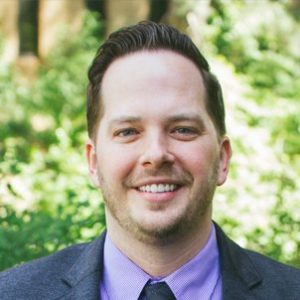Wednesday, November 7, 4pm-5pm
Lurie Engineering Center
1221 Beal Avenue
Ann Arbor, MI 48109
Johnson Conference Rooms
Mark Kiel: “Is Genomics Ready for Artificial Intelligence?”

Max Shtein earned his BS in Chemical Engineering at UC Berkeley and PhD in Chemical Engineering at Princeton, where he developed key aspects of Organic Vapor Phase Deposition and invented Organic Vapor Jet Printing. He joined the Materials Science and Engineering department at U-M in 2004, where he now serves as Professor, with appointments in Chemical Engineering, Applied Physics, Macromolecular Science and Engineering, Art & Design, and as faculty co-director for the Undergraduate Program in Entrepreneurship in the College of Engineering. His work has been recognized through several awards: the Presidential Early Career Award for Scientists and Engineers (PECASE), the MSE Department Achievement Award, College of Engineering-wide Vulcans Prize for Excellence in Education, the Newport Award for Excellence and Leadership in Photonics and Optoelectronics, the Materials Research Society (MRS) graduate student Gold Medal Award, and others. He co-founded Arborlight, LLC (www.arborlight.com – a multiple award-winning lighting technology), and co-authored the book Scalable Innovation: A Guide for Inventors, Entrepreneurs, and IP Professionals.
“Nanocrystalline, Small Molecular Active Pharmaceutical Ingredients for
Precision Medicine Applications,” or, “Finally: a Path to Freedom From the Lipinski Criteria?” Abstract:
We developed a completely solvent-free method for creating nanocrystals of nearly any small molecular active pharmaceutical ingredient (API), incorporating these crystals into virtually any delivery vehicle, and achieving ultra-precise and combination dosages. The nanoscopic size of the particles and coatings ensures their stability, while the ultra-high surface area enables order-of-magnitude increase in dissolution rate of lipophilic APIs in water. This new processing method is highly scalable and circumvents longstanding trade-offs encountered in developing small-molecular medicines. Having demonstrated enhancements in dissolution, as well as in vitro bioavailability, it appears that the aqueous solubility constraint embedded in the Lipinski Rule of Five may be circumventable. We are actively seeking collaborators from medicinal chemistry, pharmacology, biology, and other domains to develop breakthrough applications and treatments using this technology.

Mark Kiel, MD, PhD, a Molecular Genetic Pathology Fellow at U-M, is CSO & co-founder of Genomenon. Mark’s passion is to power the practice of precision medicine by organizing the world’s genomic knowledge. To that end, he created the Mastermind Genomic Search Engine.
“Is Genomics Ready for Artificial Intelligence?” Abstract:
Genome sequencing promises to improve diagnostic accuracy and patient outcomes in both oncology and genetics, but the volume and complexity of the data requires a significant manual process to ensure high-quality interpretation. In the wake of IBM Watson, is Genomic Medicine Ready for AI?

